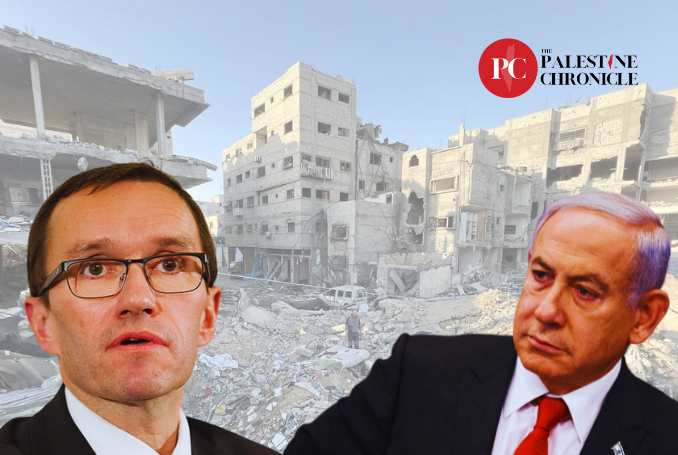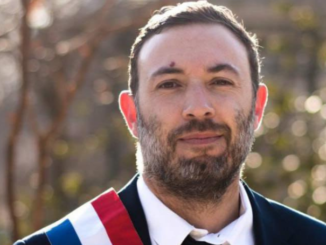
Norway stated that ‘under international law, Israel is obligated to support the Palestinian population under occupation.’
Norway announced on Tuesday its intention to introduce a United Nations General Assembly resolution requesting the International Court of Justice (ICJ) to give an advisory opinion on Israel’s obligations as an occupying power to comply with international law and allow humanitarian aid into the besieged Gaza Strip, a statement by the Norwegian government said.
“Under international law, Israel is obligated to support the Palestinian population under occupation,” the statement stressed.
According to the statement, this was reaffirmed by the ICJ on July 19, where the court ruled that “Israel is obligated to administer the occupied territory in a manner that benefits the local population.”
The Norwegian move, which principally aims at obliging Israel to comply with international law by allowing humanitarian aid from various countries and international organizations including the UN, came in response to Monday’s Israeli ban on the United Nations Agency for Palestine Refugees (UNRWA) in Israel and the occupied Palestinian territories.
The Norwegian Foreign Minister Espen Barth Eide announced the move by his country on his page on X.
“Norway is initiating a UN resolution asking the International Court of Justice to clarify Israel’s legal obligations to ensure that aid reaches Palestinians,” he stated.
“With this initiative, Norway wants to establish that no country can rise above its obligations under international law,” Eide also said, adding: “We see similar trends in other countries – that leaders try to undermine humanitarian law and aid work in situations of crisis and conflict. We must stop this development”.
The foreign minister cautioned that the ban on UNRWA would make the whole Middle East region even more unstable.
“UNRWA must survive,” he wrote on X, stressing that “no country is above international law.”
The Norwegian top diplomat said that the Israeli ban comes as a violation of international law by Tel Aviv, and undermines the two-state solution that would see the establishment of a Palestinian viable state.
According to a statement by the foreign ministry, Norway will further request the ICJ to look into other hindrances faced by UN agencies in their work in the Gaza Strip during the one-year genocide.
For his part, Norwegian Prime Minister Jonas Gahr Store said in a statement that “the international community cannot accept that the UN, international humanitarian organizations and states face systematic obstacles to being able to work in Palestine and provide humanitarian aid to the Palestinians under occupation.”
“This undermines the right of Palestinians to receive humanitarian aid and lifesaving assistance. We have a collective obligation to respond to this,” he added.
“The Knesset’s decision, which in practice makes it impossible for UNRWA to work in Palestine, is a decision that will affect Palestinian civilians who live in deep need,” he stressed.
Store pointed out that the move could have “dramatic consequences for millions of civilians.”
According to the statement, several countries and UN organizations, including UNRWA, have extended their support of the Norwegian move,
‘Serious Precedent’
Israel’s ban on UNRWA in Israel and the occupied Palestinian territories has been met with world condemnation.
In a joint statement, the Governments of Ireland, Norway, Slovenia and Spain condemned the legislation.
“UNRWA has a mandate from the United Nations General Assembly. The work of the Agency is essential and irreplaceable for millions of Palestinian refugees in the region, and particularly in the current context in Gaza,” the statement said.
“The legislation approved by the Knesset sets a very serious precedent for the work of the United Nations and for all organizations of the multilateral system,” it added.
Norway also pledged in June to increase its funding of UNRWA, saying the agency was “the backbone” of the humanitarian response in the besieged Gaza Strip.
“The war, accusations made by Israel, continuous attacks on the organisation and funds withheld by major donors, have put UNRWA in an extremely difficult financial situation,” Anne Beathe Kristiansen Tvinnereim, the Minister of International Development, said.
The new funding was announced on June 17 during UNRWA Commissioner-General Philippe Lazzarini’s visit to Norway.
The NOK 100 million (approximately $10 million) to UNRWA comes in addition to the NOK 275 million Norway contributed earlier this year.
It also joined tens of countries to submit filings to the International Criminal Court (ICC) to issue arrest warrants against Israeli leaders.
Genocide Continues
Flouting a UN Security Council resolution demanding an immediate ceasefire, Israel has faced international condemnation amid its continued brutal offensive on Gaza.
Currently on trial before the International Court of Justice for genocide against Palestinians, Israel has been waging a devastating war on Gaza since October 7.
According to Gaza’s Ministry of Health, 43,020 Palestinians have been killed, and 101,110 wounded in Israel’s ongoing genocide in Gaza starting on October 7, 2023.
Moreover, at least 11,000 people are unaccounted for, presumed dead under the rubble of their homes throughout the Strip.
Israel says that 1,200 soldiers and civilians were killed during the Al-Aqsa Flood Operation on October 7. Israeli media published reports suggesting that many Israelis were killed on that day by ‘friendly fire’.
Palestinian and international organizations say that the majority of those killed and wounded are women and children.
The Israeli war has resulted in an acute famine, mostly in northern Gaza, resulting in the death of many Palestinians, mostly children.
The Israeli aggression has also resulted in the forceful displacement of nearly two million people from all over the Gaza Strip, with the vast majority of the displaced forced into the densely crowded southern city of Rafah near the border with Egypt – in what has become Palestine’s largest mass exodus since the 1948 Nakba.
Later in the war, hundreds of thousands of Palestinians began moving from the south to central Gaza in a constant search for safety.
(The Palestine Chronicle)









I think Norway could also look into impounding the assets of the Jewish National Fund, and using them for Palestinians, on the same principle of international law that sees the EU and the US impound Russian Federation finances and use them for Ukrainians.